
http://www.amazon.com/Kremlin-Rising-Vladimir-Putins-Revolution/dp/1597971227/ref=sr_1_1/103-9239512-0805433?ie=UTF8&s=books&qid=1176790367&sr=8-1
IF South Beach Hoosier were still living in Washington, he'd have made it his business to be at this event last Thursday on the beautiful but cold Georgetown campus that he once knew so well:
"Washington Post reporters Peter Baker and Susan Glasser discuss the revised, paperback edition of Kremlin Rising: Vladimir Putin's Russia and the End of Revolution at a reception at Georgetown University, Old North, Room 205. To RSVP for this event, sponsored by the Center for Eurasian, Russian, and East European Studies, call 202-687-6060 or e-mail ceres@georgetown.edu. "
I first saw Susan Glasser in action during the summer and fall of 1992 when she and I were both working at Roll Call Newspaper on Capitol Hill, albeit, in two very different capacities: Susan in front of the scenes and myself behind.
I've closely followed her career ever since, and read her and her husband Peter's book twice now from cover-to-cover, as well as taped and re-watched their fascinating July 2005 appearance on C-SPAN's Book TV, which never fail to elicit buzz from not only serious foreign policy types -since they can go toe-to-toe with any wannabe Russian experts using facts, anecdotes or penetrating insight as their weapons- but with relative Russian novices as well, who are never sure who the various 'players' are.
See Wilson Center's http://www.wilsoncenter.org/index.cfm?fuseaction=events.event_summary&event_id=101670
Anyone who follows Russia as closely as I do, much less, even casually watched Charlie Rose's various shows on Russia under the iron hand of Putin's brand of authoritarian crony capitalism over the past 18 months -see the three below- is NOT at all surprised by what's happened, as Susan and Peter accurately forecast it while they were still in Moscow, seeing it with their own eyes, even if not always quite believing what they were really hearing and seeing, never more so than with what they saw for themselves in the Beslan school massacre.
Charlie Rose - Garry Kasparov and Stephen Cohen / Francis Collins
Buy $0.99 - Charlie Rose Inc. - 57 min - Jul 25, 2006 -
Segment 1: A discussion about Vladimir Putin and Russian politics with chess champion Garry Kasparov, Chairman of the United Civil Front of Russia, and ... http://video.google.com/videoplay?docid=-1553248045989563785
Charlie Rose - Gaza / Muslims and the West / Stephen Cohen on Russia
Buy $0.99 - Charlie Rose Inc. - 57 min - Jun 28, 2006 -
http://video.google.com/videoplay?docid=-9022691433457056364
Charlie Rose - Annette Bening & Ryan Murphy / Brian Cox / Robert Amsterdam
Buy $0.99 - Charlie Rose Inc. - 57 min - Oct 27, 2006 -
... Segment 2: Brian Cox discusses his work in the film "Running with Scissors". Segment 3: We conclude with Robert Amsterdam, attorney for Mikhail Khodorkovsky. http://video.google.com/videoplay?docid=-6122313171658656260
The Robert Amsterdam interview is especially powerful!
See http://www.robertamsterdam.com/Charlie_Rose_transcript.doc.
A few months ago, before I started this blog, finding myself increasingly agitated by what I was seeing, hearing AND reading, I wrote some insightful friends around the country the following:
"Recognizing China & Russia for what they are, and not as we'd like them to be, is a long-overdue message that's been sorely absent in Washington for the past few years, both in the press and on Capitol Hill.
As someone who's attended literally hundreds of House and Senate Foreign Affairs Comm. hearings over the 15 years I lived in the DC area, under both the late Dante Fascell, Lee
Hamilton -both of whom represented me in Congress over the years- and Henry Hyde on the House side, and Claiborne Pell, Jesse Helms, Richard Lugar and Joe Biden on the Senate side, the wishful thinkers have long held more sway than you'd think would be the case under Republicans, but because of strong agricultural interests, i.e conservative Doug Bereutter of Nebraska and liberal Jim Leach of Iowa, and the role of Archer Daniels Midland and ag equipment manufacturers like John Deere, there was seldom a handy stick to accompany the obligatory carrot.
Yet to me, this rarely gets the sort of attention it deserves outside the DC, Boston and NY foreign policy axis.
I've longed to see a Russian-oriented version of former Los Angeles Times Beijing bureau chief James Mann's excellent, The China Fantasy: How Our Leaders Explain Away Chinese Repression.
http://www.amazon.com/China-Fantasy-Leaders-Explain-Repression/dp/0670038253
(See also http://www.atimes.com/atimes/China/IC17Ad01.html
Mr. Mann is now trying to pound some sense into foreign policy students at one of my favorite places in all of Washington, where I've been informed and entertained for many dozens of hours in equal measure: SAIS, The Paul H. Nitze School of Advanced International Studies of The Johns Hopkins University, one of the nation's leading graduate schools devoted to the study of international relations
http://apps.sais-jhu.edu/faculty_bios/faculty_bio1.php?ID=269i )
The only exception to this has been the great book by the Washington Post's former Moscow
co-Bureau Chiefs, Susan Glasser & Peter Baker, who are married. (I first met Susan when she and I were both toiling at Roll Call in '92.)
She is clearly one of THE smartest and most perceptive persons I've EVER met, and she is great with context & detail, my own favorite bread & butter. And can she ever tell story...
The real question is why someone prominent in Washington -other than Tom Friedman- hasn't said this before and more emphatically.
There've been a few people at some recent Brookings' events I've caught -and taped- on
C-SPAN, who've come close to saying this, but they always stop just short of the line I personally want to see crossed.
See http://www.brookings.edu/comm/events/20060724_iran.htm specifically, Carlos Pascual. Transcript at http://www.brookings.edu/comm/events/20060724iran.pdf
Frankly, at times like that, I can't help but wonder if they self-mute because they want to be able to continue to visiting those countries in the future.
Pols, of course, would have no such excuse.
See also transcript of Washington Post business columnist Steven Pearlstein's online discussion of the Russian energy industry and investments in Russia.
http://www.washingtonpost.com/wp-dyn/content/discussion/2006/06/27/DI2006062700663.html
As for those well-intentioned ads that keep airing on CNN, asking President Bush to get international troops to Darfur, Sudan, they'd be more accurate and effective if they actually called out the two people who are using their veto threats to prevent it from happening,
namely Putin and Hu."
In my opinion, this morning's Post editorial on Putin gets it just right.
http://www.washingtonpost.com/wp-dyn/content/article/2007/04/16/AR2007041601436.html
___________________________________________
Editorial
The Washington Post
Pushkin Square Crackdown
Why is Vladimir Putin so afraid of a few thousand dissenters?
Tuesday, April 17, 2007
IN THE DAYS of Mikhail Gorbachev and glasnost, Pushkin Square in central Moscow was the site of historic rallies protesting repressive Soviet rule. On Saturday, international chess champion turned opposition leader Garry Kasparov sat in a Russian lockup after trying, unsuccessfully, to march on the historic square. Joining him in jail were 200 other dissenters. The next day, authorities picked up an organizer of a rally in St. Petersburg before she could even join her compatriots, 120 of whom were also arrested. Their crimes? Attending an unauthorized protest, violating traffic laws or -- the most farcical -- making "anti-constitutional" statements.
Other Russia, an umbrella organization of the country's disparate anti-Kremlin opposition groups, has been organizing such demonstrations in cities across Russia over the past few weeks, despite government efforts to stop them. Last weekend's protests were to be the most prominent yet, occurring in the country's two largest cities. In the end, about 2,000 people showed up in Moscow on Saturday -- to be greeted by 9,000 police and Interior Ministry officers. Another 3,000 attended Sunday's demonstration in St. Petersburg. In both cities, Russian authorities beat groups of protesters with clubs.
Ostensibly, President Vladimir Putin remains popular in Russia. He has presided over impressive economic growth. So why is he so frightened, so unwilling to allow a few thousand opponents to peaceably assemble in central Moscow? The answer ironically may lie in his success at choking off freedoms in his country. The media have been muzzled, and many local elections have been eliminated; the normal mechanisms for people to express their desires and complaints in a healthy society are gone. As a result, to gauge public sentiment Mr. Putin is left with little but the reports of his old colleagues in the former KGB, and that may encourage a tendency toward paranoia.
U.S. and European leaders have responded with varying degrees of indignation to the disturbing images of truncheon-wielding police thrashing unarmed students. White House spokeswoman Dana Perino called the Russian authorities' reaction "heavy-handed" and "unacceptable," while a State Department spokesman said, "It raises a question about whether or not those opposition parties, those opposition figures are able to freely and peacefully express their opinions in the context of contested elections." Unfortunately, it does not raise that question; it provides a sad and obvious answer.
____________________________________________________________
See First Chapter of hardback edition of Kremlin Rising at:
http://www.nytimes.com/2005/07/17/books/chapters/0717-1st-baker.html?ex=1176955200&en=20f6a319035f7a85&ei=5070
____________________________________________________________
http://query.nytimes.com/gst/fullpage.html?res=9B05E0D6163DF934A25754C0A9639C8B63
New York Times Book Review
July 17, 2005
A Modern K.G.B. Colonel
By ANDREW MEIER
KREMLIN RISING Vladimir Putin's Russia and the End of Revolution.
By Peter Baker and Susan Glasser. Illustrated. 453 pp.
A Lisa Drew Book/Scribner. $27.50.
DURING the darkest days of Vladimir Putin's war in Chechnya, the press briefings in Moscow were growing ugly. Instead of offering even the most minimal information from the war zone, the Kremlin was chastising journalists in public -- at times by name. A group of correspondents, Western and Russian, contemplated a boycott. A plea circulated by e-mail. One reporter, a longtime Moscow resident with a European passport, shot back a blunt reply: ''We can only do one thing -- remind our readers that Putin is intent on building a semi-authoritarian regime that's prepared to kill its own citizens to stay in power.''
''Kremlin Rising: Vladimir Putin's Russia and the End of Revolution'' echoes that dismal judgment. Peter Baker and Susan Glasser, a husband-and-wife team who for nearly four years between 2001 and 2004 served as Moscow bureau chiefs for The Washington Post, have written -- thanks to an unrivaled compilation of fact and analysis -- the official record of the Putin era, or as close to one as Western readers are likely to get. ''Kremlin Rising'' is the chronicle of ''the rollback'' -- the years in which a former lieutenant colonel in the K.G.B., dispatched to the backwater of Dresden under Mikhail Gorbachev, rose to become a would-be post-Soviet czar, and presided over ''a newly assertive Russia, rejecting international loans instead of defaulting on them, glorifying its lost empire rather than exulting in the downfall of dictatorship.'' It has been a time, the authors tell us, of a Russia eager to rise again, when ''nationalism mixed with Soviet-era symbolism was the perfect balm to the collective bruised ego.'' In these days, ''managed democracy'' -- the triumphant euphemism of Putin aides -- has become more than a slogan.
Baker and Glasser's indictment is a fugue on a single theme, state-sponsored malfeasance. Whether the subject is the takeover of the independent NTV television network; the school siege in Beslan that left at least 330 dead, more than half of them children; the prosecution of the oligarch Mikhail Khodorkovsky and the takedown of his Yukos oil giant; arms sales to Iraq; oil vouchers from Iraq; or oil deals rigged to benefit state-owned companies, the same notes are played: falsification, fraud, indifference, neglect, deception, disinformation, manipulation, corruption, thievery and lying -- all undertaken in the name of the state. Nonetheless, if this gloomy picture is fundamentally a true one, important shadings sometimes get lost.
Baker and Glasser came to Russia from Washington as veteran political reporters. They took part in the coverage of the Monica Lewinsky scandal and Bill Clinton's impeachment. Few of their predecessors had arrived in Moscow with sharper inside-the-Beltway reportorial tools. Yet their American experience contained a danger: a readiness to scrub Russian politics of its contradictions. So they give us a restoration drama in primary colors, a battle between ''Western-style liberal democracy'' and ''a budding dictator,'' between democrats and ''Soviet leftovers.''
Baker and Glasser are right to note that siloviki -- the men from the ''power ministries,'' the secret services, police and army -- now surround Putin. Still, as they acknowledge, ''these were contradictory times . . . when a new generation of cellphone addicts could speak confidently about business school degrees one minute while bemoaning the collapse of the Soviet Union the next.''
As they explain, the ''trade-off'' between ''greater stability'' and ''less freedom'' is one ''many Russians have proved willing to accept.'' A former physicist who once nurtured dissident dreams has ''found a measure of economic security for the first time'' under Putin. And Baker and Glasser offer near-mirror quotations in the book's opening and close. In their introduction they report that one senior official told them, ''There is no ideology at all,'' only a belief in grabbing power and keeping it. In the epilogue, an unnamed official, perhaps the same one, says: ''The ideology is power and redistribution of property. . . . Power is a means of keeping property in their hands.''
Russians seem less discomfited by contradiction than Americans. They can vote for Putin and at the same time disdain his policies. As one woman tells Baker and Glasser, ''People had no real choice; they were offered Putin and they accepted him.'' Russians can applaud Putin's goals, ''the dictatorship of law'' at home and the rebirth of Russia abroad as a great power, while wincing at the grim realities of his rule: a pocket parliament, servile regional barons, a muted intelligentsia, a middle class forever emergent and business and state power interminably intertwined -- along with crime that is organized, aboveground and so cozy with the government that it is often hard to discern the difference. In short, Russians -- as the authors amply record -- understand their state's essential nature: for all Putin's muscle and talk, officialdom remains, as in the days of Pushkin, a bardak -- a mess.
Putin's rule, above all, has yielded serial contradictions. He has even given political scientists cause to devise a new classification: authoritarianism without authority. To be sure, he has undergone one of history's greatest on-the-job training courses. He now struts comfortably across the world stage, thanks to his sang-froid as a veteran K.G.B. operative and a helping hand from Western leaders. Yet his blundering over the past year -- the lethal incompetence at Beslan, the arbitrary prosecution of Khodorkovsky and, most recently, the ungainly and disastrous intervention into Ukraine's presidential election -- has resulted in an annus horribilis for him. Putin will reign on, but such momentous missteps hardly lend support to Baker and Glasser's portrait of a strongman atop a resurgent and rising Kremlin.
Andrew Meier, the author of ''Black Earth: A Journey Through Russia After the Fall,'' was Moscow correspondent for Time from 1996 to 2001.
_______________________________________________________________
http://query.nytimes.com/gst/fullpage.html?res=9F00E5D81531F932A35754C0A9639C8B63
New York Times
July 1, 2005
BOOKS OF THE TIMES; In Russia, a Free Market, Less Freedom
By WILLIAM GRIMES
Kremlin Rising Vladimir Putin's Russia and the End of Revolution
By Peter Baker and Susan Glasser Illustrated. 453 pages.
A Lisa Drew Book/Scribner. $27.50.
To President Bush, in fond moments, he is Pootie-Poot. To Peter Baker and Susan Glasser, the authors of ''Kremlin Rising,'' Vladimir V. Putin, Russia's president, is ''a K.G.B. colonel in a modern suit,'' a reactionary in his instincts and coldly realistic in his assessment of what the Russian people want and will tolerate. Since taking office at the end of 1999, the authors write, he has, in the name of ''managed democracy,'' returned supreme power to the Kremlin, smothered regional autonomy, marginalized the democratic opposition, turned television into a propaganda tool and defanged the billionaire oligarchs who run Russia's largest companies. In March 2004, he won re-election with just over 71 percent of the vote.
Mr. Baker and Ms. Glasser, who are married, served as Moscow bureau chiefs for The Washington Post from the beginning of 2001 to late 2004. ''Kremlin Rising,'' a wide-ranging, comprehensive look at Russia and its leader, follows in the tradition of journalistic debriefings like ''The Russians,'' by Hedrick Smith; ''Russia: The People and the Power,'' by Robert G. Kaiser; and ''Lenin's Tomb: The Last Days of the Soviet Empire,'' by David Remnick.
Well written, well reported and well organized, the book consists of free-standing chapters that touch on the most important events and trends in contemporary Russia, from the war in Chechnya to the spread of AIDS and the dire state of the Russian judicial system. Connecting these disparate themes is the fishy-eyed, single-minded man at the top, a thoroughgoing mediocrity, as depicted by the authors, with a vision for Russia that happens to match the moment.
After the chaos of the Yeltsin years, Mr. Putin represents less democracy, more stability and pride in the motherland, whose role as a world power he is intent on recovering, through economic and political rather than military means. It's a package that Russians find attractive.
''Putin is probably not a liberal or a democrat, but he is more liberal and more democratic than 70 percent of the population,'' Mikhail B. Khodorkovsky, the owner of the Yukos oil company and one of Mr. Putin's prime targets among the oligarchs, commented. (Mr. Khodorkovsky was recently sentenced to nine years in prison for fraud, embezzlement and tax evasion.)
Mr. Putin inherited, literally and figuratively, a sick nation. In the provinces, where the bright lights of Moscow do not reach, lies a vast land mired in illness, poverty and hopelessness. Because of a low birth rate and some of the world's highest incidences of heart disease and other illnesses, Russia's population dropped by 4.5 million in the first dozen years after the fall of the Soviet Union, a number unseen since the Stalinist purges and the famines of the 1930's. The health system is broken. One in five Russian hospitals has no running water.
The authors, on a visit to Irkutsk in Siberia, spent time with a former heroin addict infected with AIDS and found that a region with perhaps a hundred known cases at the beginning of 1999 registered more than 17,000 cases five years later. Russia, which had virtually no AIDS problem under Communism, now faces the possibility that by 2010, 250,000 to 650,000 people will die from the disease each year. The government, according to the authors, has ignored the problem; it has even turned down offers of international aid.
Everywhere, it seems, Russia faces a steep uphill climb. The military is a shambles. Corruption is endemic, from the traffic police who openly solicit bribes to the members of the Duma, or parliament, whose votes sell to the highest bidder. Mr. Baker and Ms. Glasser include a vivid account of Moscow's first trial by jury since the days of the czars. It may take a while before such alien concepts as the presumption of innocence and equal rights for the defendant gain a foothold.
When a lawyer for Igor Bortnikov, accused of strangling a man and stealing his car, questions the police investigation, the judge snaps, ''To doubt the investigation is illegal.'' Another defense lawyer, when told by the authors that juries in the United States must reach a unanimous verdict, can hardly believe his ears. That means, he says, ''You only have to buy one!''
When the picture looks bleak, there's always Tatyana Shalimova. Ms. Shalimova, 34, lives in Moscow, travels to London and Paris and drinks French cognac. Employed by a foundation dedicated to judicial reform, she rents, as the book begins, a tiny apartment and earns $1,500 a month, more than 20 times the salary of her brother, still living among the pigs and cabbages in her rural hometown. The city around her sparkles, polished by new money and buoyed by the tentative optimism of a new middle class.
In 2002, the authors report, 18 new malls opened in Moscow, their supermarkets and restaurants and shops aimed at everyday city dwellers, not the high-rolling, leather-jacketed mafia types of yesterday. When Mr. Putin took office, the city had 2 million square feet of mall space. This year, the figure reached 21 million square feet. When Ikea opened a store in the suburbs, many predicted disaster. Russians spent their money on cars and travel, not furniture. But soon home furnishings ranked No.1 on the list of Russian spending priorities, ahead of cars, vacations and even education.
Russia may have the leader it deserves. People are more nervous about speaking freely these days, but they look to the future with a little more confidence. The trade-off seems acceptable. Aleksandr Markus, a former physicist who runs a small chain of underwear shops, weathered the turbulent Yeltsin years and now sees light at the end of the tunnel.
''For 10 years, it was very hard to plan anything,'' he told the authors. ''We had such a struggle. But now I would like to make some forecasts.''

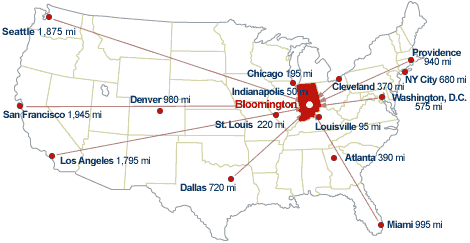
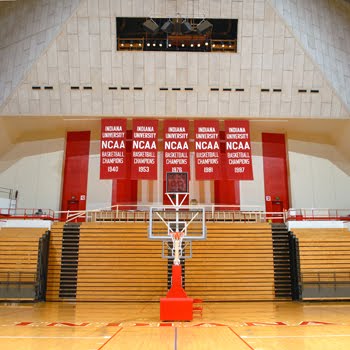


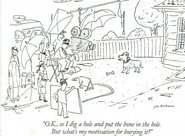




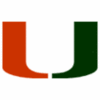
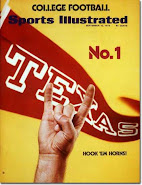
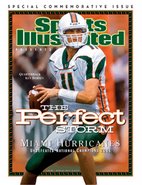
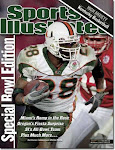
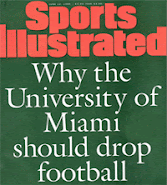
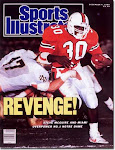
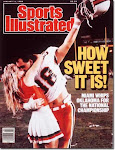
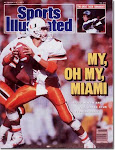

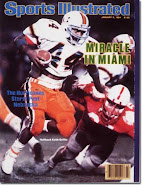
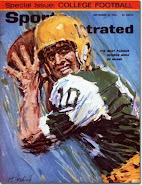


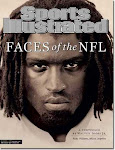
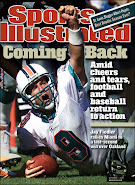
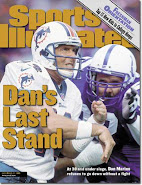
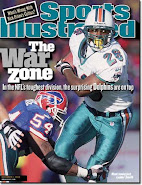
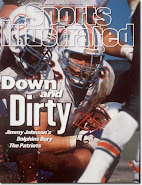

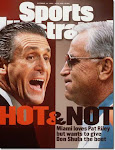

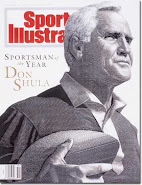
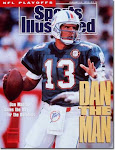
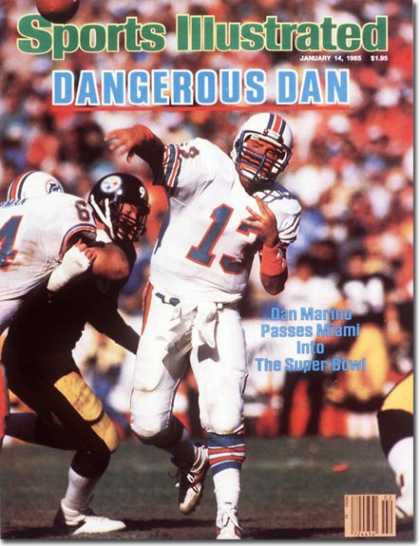

+Sep+10,+1984.jpg)
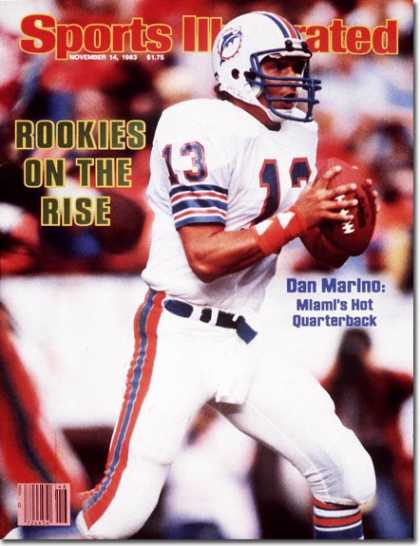
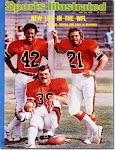
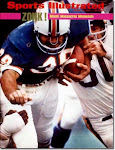
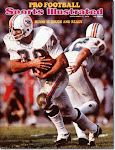
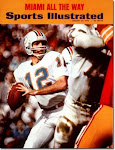
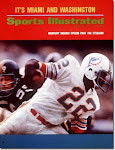

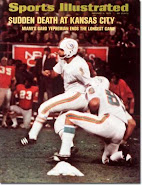


No comments:
Post a Comment